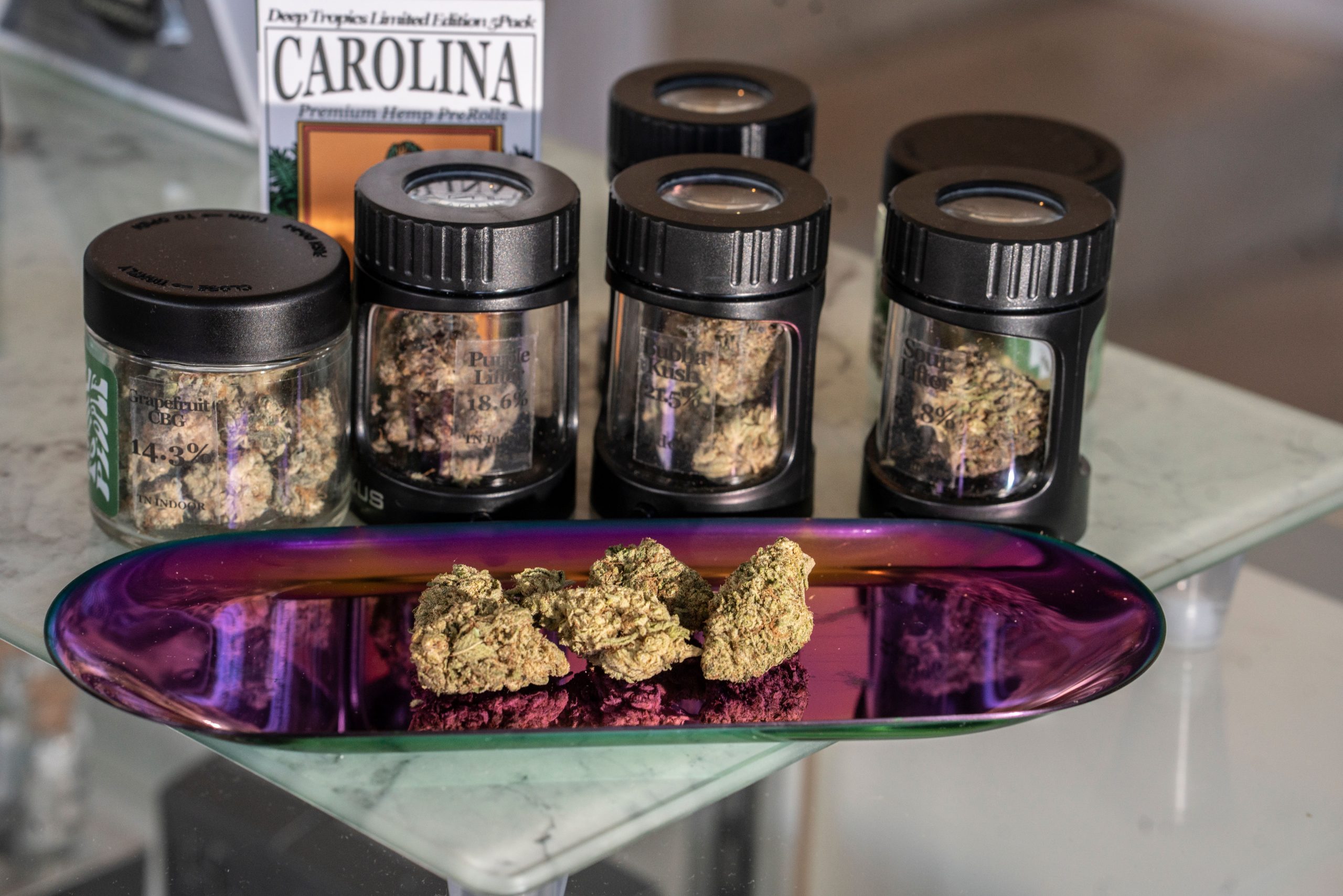Delta-8 on display at The Perfect Plant in Nashville. (Photo: John Partipilo)
Tennessee lawmakers passed legislation to begin regulating hemp-derived cannabinoid products last year, banning the selling of them to those under the age of 21.
But the Tennessee Department of Agriculture’s new rules submitted in December go further and attempt to curb the selling of hemp-derived cannabinoid products like THCA and CBD flower by changing the rules around what qualifies as THC, the psychoactive ingredient most commonly found in marijuana.
Tennessee law prevents any cannabinoid product containing 0.3% Delta-9 THC from being sold, keeping marijuana illegal in the state. The federal hemp farm bill passed in 2018 legalized the growing of hemp plants containing Delta-8 and opened the door to new forms of THC-like products.
THCA and CBD are legally sold as smokeable flowers and in edibles in Tennessee. THCA flower has become popular because it’s considered non-psychoactive by state law; it essentially becomes THC when it comes in contact with a flame.
THCA and CBD flowers are often indistinguishable from traditional marijuana, except when tested in a lab. This makes it harder for law enforcement officials to distinguish between the different cannabinoid products, potentially leading to fewer probable cause police searches and raids by the Tennessee Bureau of Investigations.
This problem has arisen most recently in Chattanooga, where a hemp shop owner is suing the city’s police department, alleging his products were wrongly seized during a traffic stop because they were mistaken for illegal marijuana.
The Department of Agriculture declined to specifically answer questions sent, instead Kim Doddridge, the department’s spokesperson, responded to all questions by stating: “The proposed rules establish requirements for hemp-derived cannabinoid products, as required by the legislation. The rulemaking for this new legislation is still underway.”
Tennessee lawmakers tried to ban hemp-derived products outright in 2022 but couldn’t muster the votes necessary to pass the measure. State officials estimated selling Delta-8 and similar products generated $180 million in economic value for the state.
This prompted lawmakers to look at regulating the industry rather than banning the products. The new law also gave the Department of Agriculture the authority to write rules around regulating Delta-8, CBD and THCA products.
The department submitted these rules in December, which could go into effect as early as July 1, 2024.
The Department of Agriculture will hold a public hearing on the changes on February 2 in Nashville.
SUPPORT NEWS YOU TRUST.
The Tennessee Department of Agriculture is set to curb the sale of hemp-derived cannabinoid products like CBD and THCA flower. Read More


